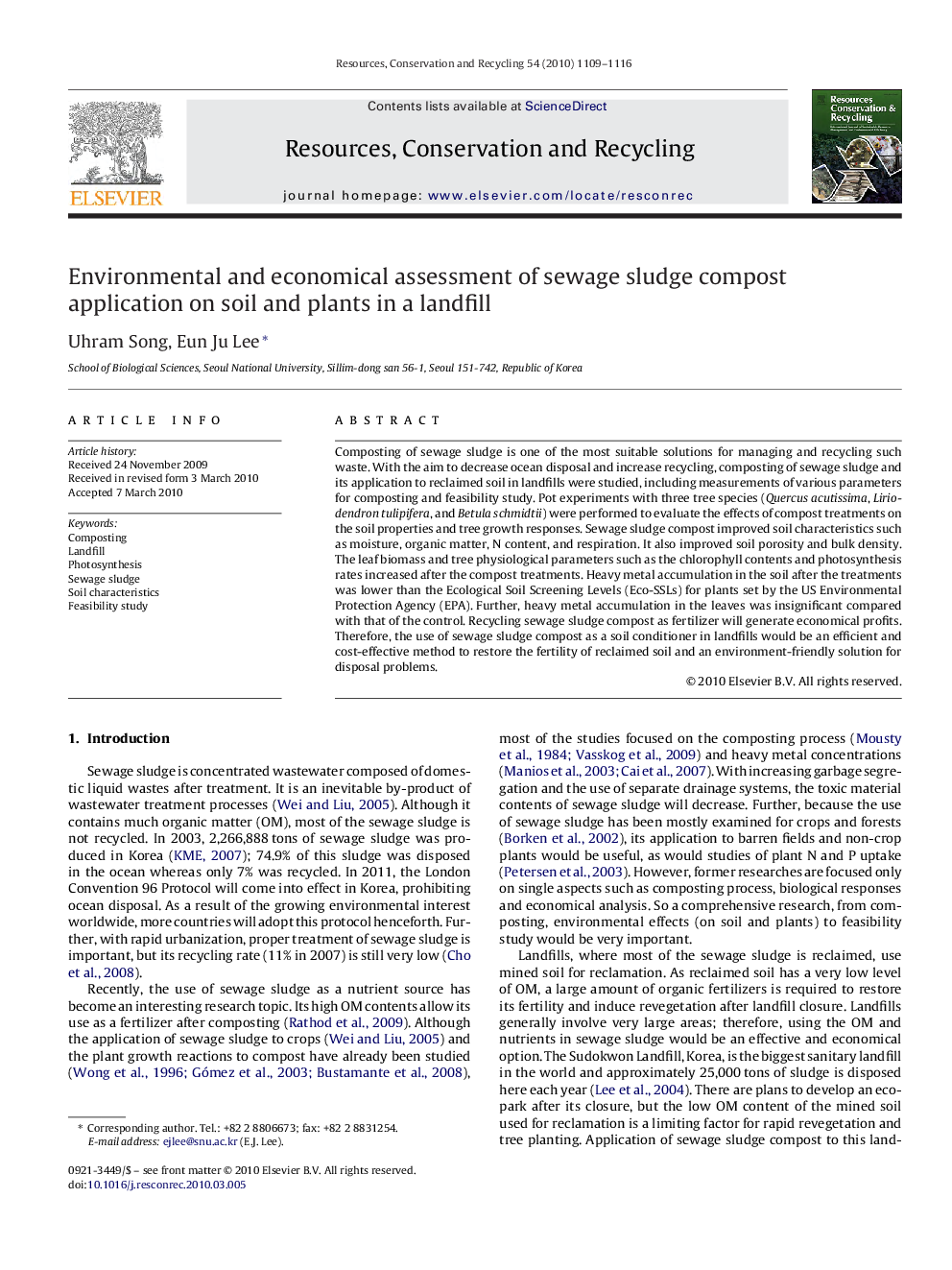| Article ID | Journal | Published Year | Pages | File Type |
|---|---|---|---|---|
| 1063797 | Resources, Conservation and Recycling | 2010 | 8 Pages |
Composting of sewage sludge is one of the most suitable solutions for managing and recycling such waste. With the aim to decrease ocean disposal and increase recycling, composting of sewage sludge and its application to reclaimed soil in landfills were studied, including measurements of various parameters for composting and feasibility study. Pot experiments with three tree species (Quercus acutissima, Liriodendron tulipifera, and Betula schmidtii) were performed to evaluate the effects of compost treatments on the soil properties and tree growth responses. Sewage sludge compost improved soil characteristics such as moisture, organic matter, N content, and respiration. It also improved soil porosity and bulk density. The leaf biomass and tree physiological parameters such as the chlorophyll contents and photosynthesis rates increased after the compost treatments. Heavy metal accumulation in the soil after the treatments was lower than the Ecological Soil Screening Levels (Eco-SSLs) for plants set by the US Environmental Protection Agency (EPA). Further, heavy metal accumulation in the leaves was insignificant compared with that of the control. Recycling sewage sludge compost as fertilizer will generate economical profits. Therefore, the use of sewage sludge compost as a soil conditioner in landfills would be an efficient and cost-effective method to restore the fertility of reclaimed soil and an environment-friendly solution for disposal problems.
